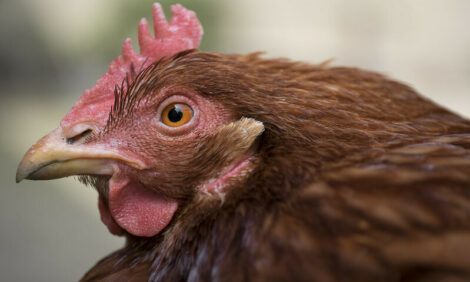



Asian countries appeal for bird flu help
VIETNAM - Asian countries battling a bird flu virus which threatens to create a human pandemic that could kill millions need urgent help from the wealthy West if they are to succeed, a 28-nation conference said on Friday.
"The threat is real and the potential is very high" for a pandemic, Samuel Jutzi of the Rome-based Food and Agriculture Organization told a news conference at the end of a three-day conference on bird flu in Ho Chi Minh City.
"The longer the virus continues to circulate in poultry production systems and ducks, the higher is the probability of infection of humans," he said.
"All 28 countries have said there is a need for external support," he said.
Vietnam is the only one to have appealed for help publicly and senior U.N. officials at the conference have complained about what one called "an alarming lack of commitment" from rich nations in the fight against the H5N1 virus.
The communist nation has been hardest hit by the virus which erupted across much of Asia at the end of 2003 and has killed 46 people -- 33 Vietnamese, 12 Thais and a Cambodian.
It now has another case, a 21-year-old man whose younger sister may also have caught the virus, officials said.
"Now we are disinfecting his home area. It is not clear how he was infected, but during Tet people everywhere ate chickens," said Dr Pham Van Diu, referring to the Lunar New Year holiday this month when poultry is traditionally served.
Almost all the people known to have caught the virus got it from contact with sick birds. It has killed more than 70 percent of people infected.
THAILAND, INDONESIA, CHINA
But while Vietnam has borne the brunt, the H5N1 virus was now also endemic in Thailand, Indonesia and China, Jutzi said.
The experts no longer talk about eradicating the disease, but of containing it before it mutates into a form which can pass between humans and sets off a pandemic.
The conference agreed this meant the way Asia raises poultry -- usually around the house and free to wander among other animals -- would have to change, Jutzi said.
This was a key long-term issue -- how to overhaul poultry farming so birds are raised away from other animals and in pens so they can't mix with wild birds or ducks believed to be natural carriers of the virus.
Implementing biosecurity measures -- everything from building closed chicken sheds and erecting bird netting to chemical baths and vaccines -- is hugely expensive in poor countries such as Vietnam, Laos, Cambodia and Indonesia.
Nevertheless, the FAO is adamant that no matter how big the task, money must be found and age-old farming practices reformed.
"If we want to control avian influenza there may be people who lose their livelihoods," said FAO animal health chief Joseph Domenech.
Donors would have to cough up $100 million in the short-term fight against the virus, a sum which could rise to $300 million, the conference said.
"That does not include subsidies, compensation and incentives for a long-term restructuring of the industry. Those funds are several hundreds of millions of dollars," Domenech told Reuters.
But he said it was up to affected countries to draw up specific aid requests after the meeting, attended by donors such as the United States, Britain, Australia and Japan.
It also agreed surveillance systems needed to be enhanced, regional networks strengthened and gaps in the knowledge about the virus filled, Jutzi said.
Source: Reuters - 25th February 2005








